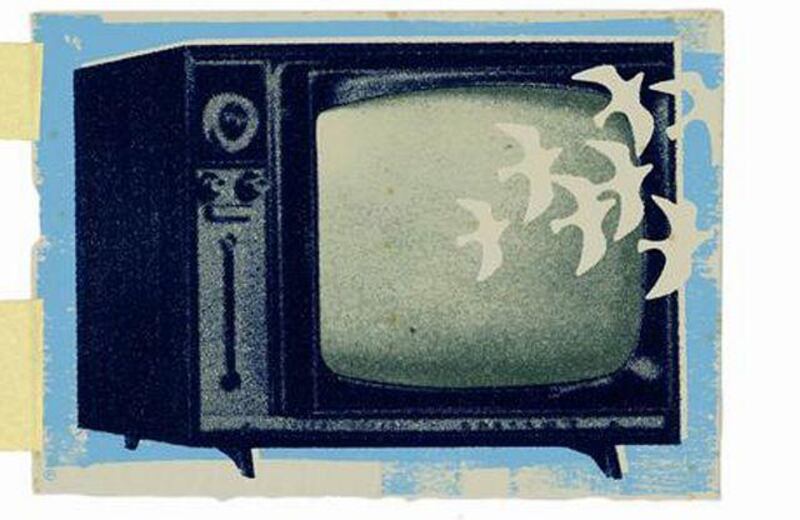Both in the United Arab Emirates and the wider Middle East, we have come a long way as poets. In days of old, our words gave inspiration to the crescendo of political voices in countries such as Egypt, Iran and Iraq. Today, poetry plays to a different tune. We no longer need to amplify tribal pride or espouse a national political ideology. Arabic poetry now embraces the humanist sentiment. This is the reality of our new, globalised world.
When tragedy unfolded in Gaza earlier this year, I understood that here was a deeply disturbing human story which transcended politics. Here was a case above and beyond the "us versus them" stereotype. In my poetry at the time, I hope the message I tried to convey was appreciated as much by an Israeli humanist as by a Palestinian. Both have one thing in common: both are global citizens of our modern world today.
Of course, this does not mean that all discussion of politics should be discouraged. But the raison d'être of the Arabic poem today is to communicate with the conscience of humanity, regardless of whether we are Syrian or Palestinian or Israeli or American. This also applies to whatever our political leanings might be. This idea is now crystallising our new identity. Centuries ago, before there were states and empires in our region, the Arab poet played many roles, all of them central and essential to his tribe and clan. He was the defence ministry, the ministry of social affairs, foreign ministry and the ministry of information. But when the Arab state was born, the poet retreated into a smaller role. The state established ministries of defence and information and foreign affairs, and the poet became just the voice of his political party and ideological affiliation.
In the Fifties and Sixties, poets saw their fortunes revived in Arab lands. Arab political parties benefited from the poets in their midst, who loaded their songs with political messages. At a time when many governments sought to keep a close eye on all social gatherings, for fear of subversion and political opposition, poetry gatherings and performances could easily slip under the radar. But even then, many poets could not resist their instinctive bias towards humanity. Take the Palestinian poet Mahmoud Darwish. His early poetry was about fighting the occupation of his homeland: his poems have a clear call for jihad. But his later work started to reveal something else: he wrote about the poet's relationship with death. In these later poems by Darwish, we find that his political ideology begins to disappear. What takes its place is an observation of humanity.
The same is also true of Ahmed Shawqi, dubbed the Prince of Poets. He was initially acquiescent of authority, delivering eulogies to the Khedive, where he worked. He even revived the genre of praising authority. But his later work about religion, children and even animals, much of it written after he returned to Egypt from exile in Spain, reveals his sense of humanity. Poetry today is regarded as entertainment, and perhaps rightly so. In the modern world, it has to compete against a host of other distractions: football, cinema and music. It has never been more important for the poet to entertain an audience. At the same time, poetry should also deliver a cultural message.
The Prince of Poets, which returns for another series next week, has succeeded in turning Arabic poetry into cultural entertainment. I speak from personal experience. Over the years, after reaching out to my audience with my cultural message, I have received a great deal of praise. I have been honoured by the Sudanese president, the Mauritanian vice president and ministers and dignitaries from Algeria and Tunisia, to name but a few.
The oral tradition has taught me that when a poet revives an incident from history, the audience appreciates the connection. In the same way when a poet captivates a state of mind, a moment from the human condition that all of us share, audiences relate to the connection. A poem that beautifies our country in our eyes is equally a moment to relish. Unfortunately, some Arabs seem to have little appreciation for our country of origin, until we migrate and become expatriates elsewhere. Only then do we relate to the myriad poems out there that capture the all too familiar nostalgia of being homesick and feeling alienated in a strange land.
In our cultural dialogue with the rest of the world, poetry should be impregnated with our own values. We can infuse our verses with a culture of peace instead of a culture of violence. Arab poetry is also best served when stripped of dogmatic misconceptions about the West. For example, we should not use words like "enemy" to describe the United States, a country that is part of the same global village in which we live. The notion of "us versus them" is antiquated at a time when many wealthy Arabs send their sons and daughters to American schools for an education. This notion was once missing in the past because many poets were prisoners of local politics and regional power players. Today's poets must strive to be independent from the political mainstream.
As a poet, I have a natural bias to represent the hungry, the distraught and the disenfranchised in any part of the world. In this way, the Arab poet can deliver a humanist message to as wide an audience as possible, regardless of the audience's socio-economic and educational background. As a poet, it is my responsibility to engage with my audience. And indeed we need today a thousand poets to do just that.
Abdul Kareem Maatouk was the winner of the first Prince of Poets






